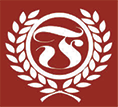
15 Jul Borrowed from Sherdog:Spike22’sRobWashington
Guam, a 30-mile-wide island, sits in the western Pacific Ocean, partially surrounded by two of the deepest surveyed points in the world. Or, as unbeaten lightweight up-and-comer Robert Washington puts it, “It’s a tiny island in the middle of nowhere.”
One would be hard pressed to find someone who could point out Guam on a map, but the island’s anonymity ends when it comes to mixed martial arts. Home to a rich tradition that dates all the way back to the Super Brawl events in the late 1990s, the island’s seemingly out-of-the-way location has made it the ideal middle ground for talent from Asia, Australia and Hawaii in search of international experience.
However, when Washington first set foot in Guam, MMA was the last thing on his mind. For much of his life, cold, hard logic, fermented by a childhood full of poverty and desperation, was the driving force in his life. The hard times go way back, as Washington grew up in East St. Louis, Ill. — a once prosperous city now dominated by crumbling factories and boarded-up stores. Deindustrialization and white flight wiped out the city and left Washington’s mother to raise three kids without a father or much of a fighting chance.
“There were gangs, drugs, guns, everything … and it was everywhere,” says Washington in a solemn monotone. “My mom was trying to raise us best she could, but there were times we ate mayonnaise sandwiches for dinner. I remember when we had to eat seasoned salt sandwiches and drink rain water because our water got cut off.”
From the word go, Washington had to climb his way out of a deep hole. The only one of his maternal grandmother’s 13 grandchildren to graduate from high school, he knew he had to turn that diploma into a ticket out. Questions at age 18 revolved around what escape route he would take.
“I had a chance to go to college; some NAIA schools offered me wrestling scholarships, even though I kind of underachieved as a wrestler. And then there was the Navy,” Washington says. “The truth is that I needed the money, my family needed money and I just felt like I wanted to get as far away from East St. Louis as I could get.”
The 9/11 terrorist attacks galvanized his decision. Despite being all but cut off from the American dream by circumstance, Washington still describes himself as a patriot.
“Growing up was hard,” Washington says, “but I always knew if I worked hard, I could make it out and make something out of myself.”
A year later, he was living in Guam as a military police officer, looking for something to satisfy the thirst for competition on which every wrestler thrives.
“I started wrestling with the Guam national team and [ended up] getting real good at freestyle wrestling,” Washington says. “I got good enough that I tried out for the Navy wrestling team and made it three years in a row, from 2002 to 2005, but I couldn’t go to the trials because military command couldn’t give me the away time.”
The disappointment of his stalled wrestling career was compounded by a deteriorating marriage and subsequent custody battle for his three young sons.
“I met my ex-wife on the island and we got married in 2002, but after a few years, things started getting rough and we separated,” Washington says. “When we divorced, there was a problem over who would get the kids. I’m just glad she eventually agreed that it was better for me to have them.”
The stability of his military career helped Washington make his case for custody, but he had to balance that career with the demands of being a single father to three kids. Even with the time crunch that comes with being a working single parent, Washington still wanted to add something to his plate that could replace the thrill of his wrestling days.
“I had a buddy of mine in the military who took a fight in a local show, and around then, I got to spend some time in San Diego and check out some MMA schools,” he says. “As soon as I got back to Guam, I hooked up with a random MMA school and won my first fight after three weeks of training.”
The fight did more than sate his appetite for competition; it proved to be a turning point in his life.
“It was the first time something made me that happy besides my family,” Washington says. “All the hard work felt like it could really lead me to something big.”
Enter Melchor Manibusan, the founder of Guam’s preeminent MMA gym — Spike 22.
“I knew I needed to find a better place to train, so I joined up at Spike 22 because I heard Melchor was the man in Guam,” Washington says. “My first sparring session was a disaster, though. I remember sparring with Melchor, and he hit me with an uppercut that felt like it broke my whole face.”
Washington was not far off; a fractured jaw left his mouth wired shut. The injury, when paired with the insane schedule he keeps, made the idea of quitting MMA seem like a logical choice. Instead, Washington pressed forward.
“I wake up at 5:30 [in the morning] and call my babysitter over so I can head to the gym and train for a couple of hours,” he says. “Then I go back home, get ready and go to work. As soon as I’m done there, I go back to the gym to train for a few more hours before going home to take care of my boys.”
The schedule rolls off his lips effortlessly.
“It’s hard sometimes trying to keep everything straight,” Washington says, “but hard work pays off, y’ know?”
On days when it all feels like too much, he looks down at a tattoo on his arm. Washington is covered in ink, but this piece always reminds him why he works.
“It’s the names of my three boys,” he says. “When it feels like I can’t go on, I look at that and remember that I can’t ever let them down.”
Washington remains focused on the tasks at hand, as he cuts weight for his July 15 bout against Australian Josh Payne. The fight will air live throughout Asia on ESPN Star Sports as part of the Martial Combat series in Singapore. It represents the highest-profile match of Washington’s career. He hopes to catch the eyes at the UFC, Strikeforce and any other promotion that could help launch his career, especially as his time with the Navy nears its end.
“We were having some over-manning issues, and the Navy couldn’t put me anywhere else, so I’m going to part with them on good terms,” Washington says. “I’ve dealt with so much that it really isn’t a problem for me. It’s the opportunity I needed to really dedicate myself to MMA and find out how far I can go.”

